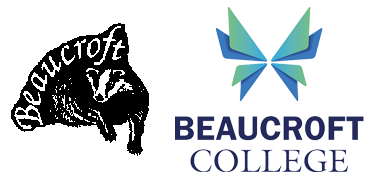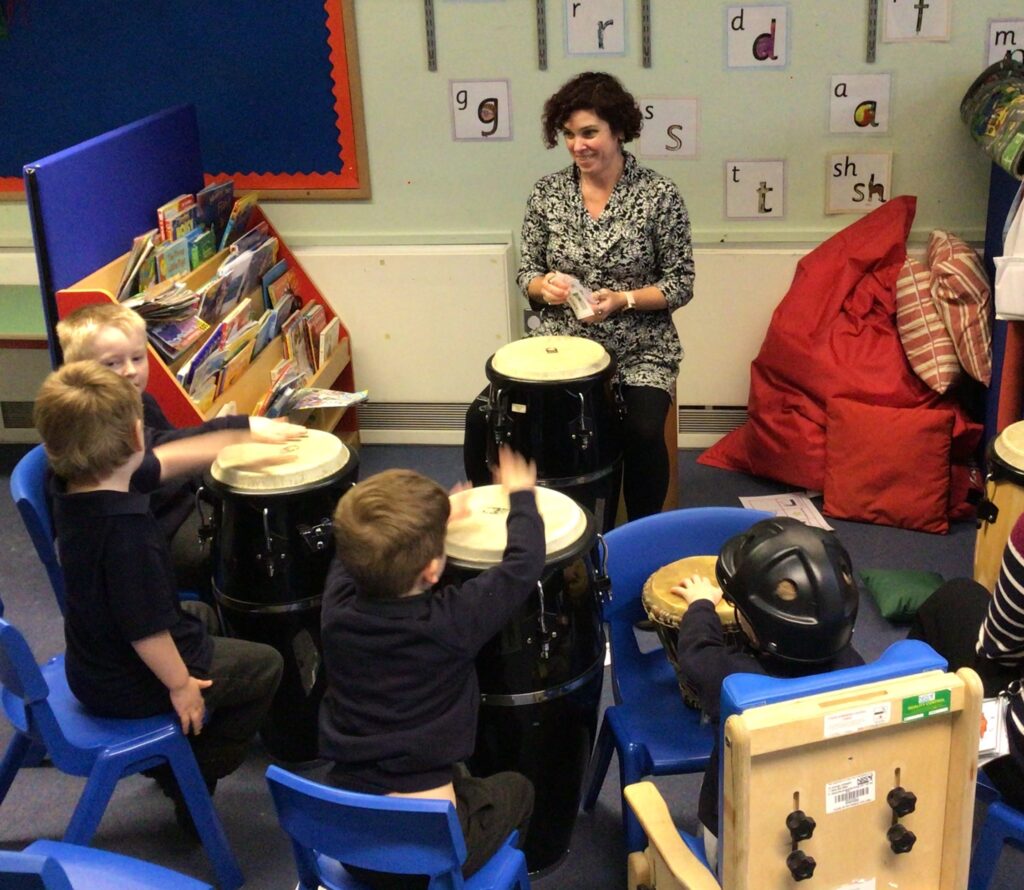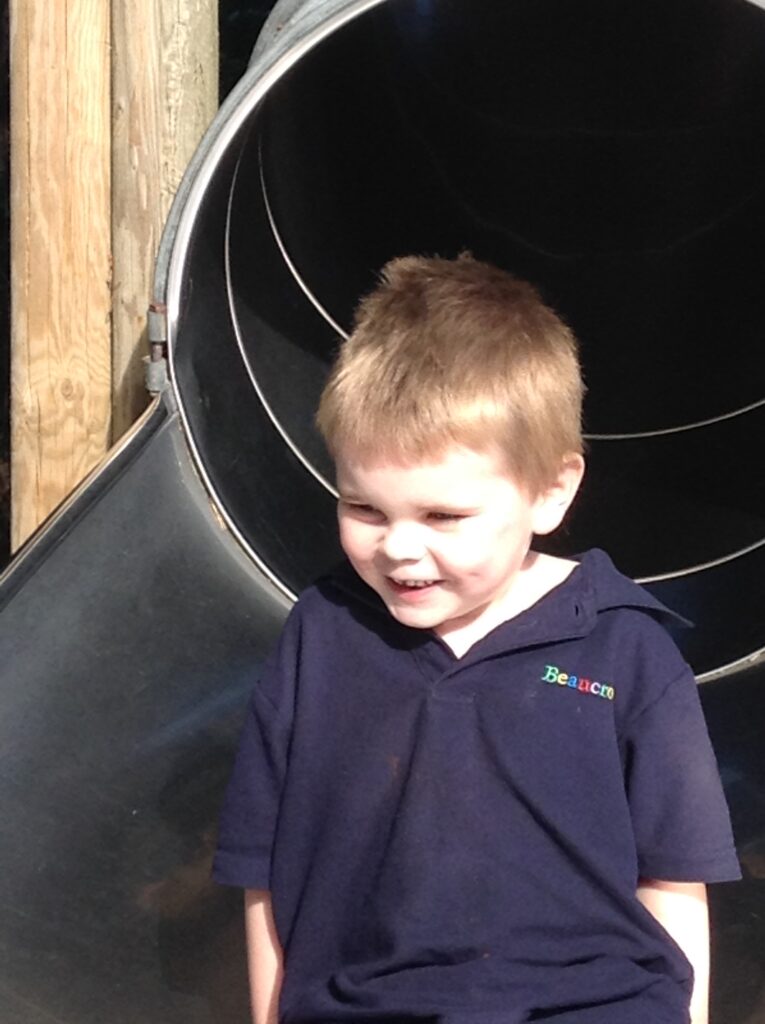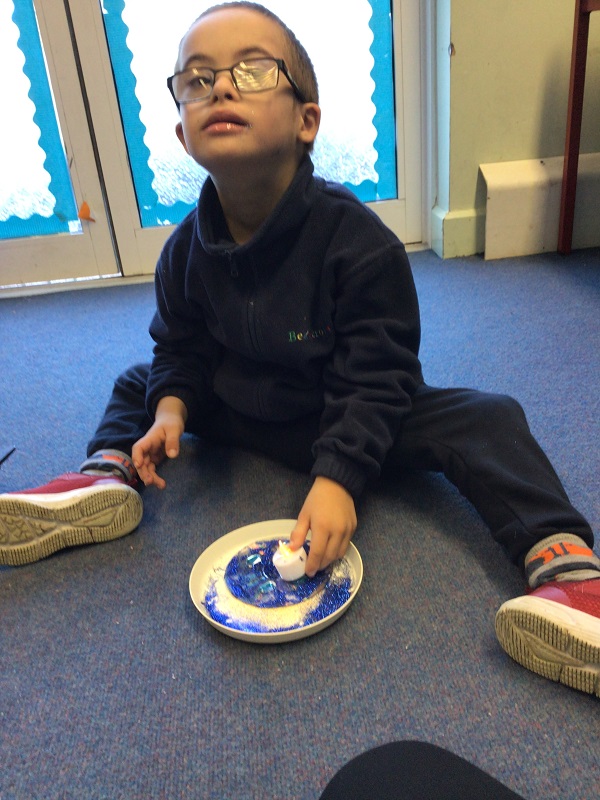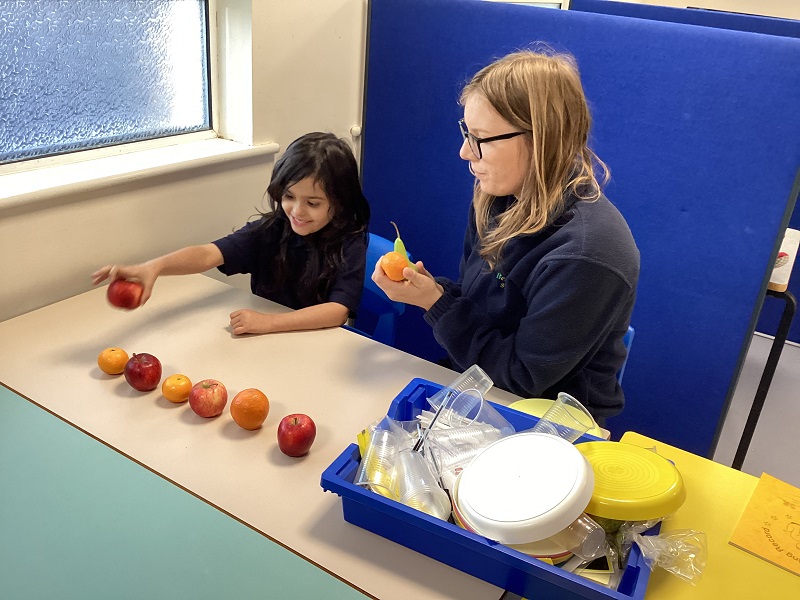In the Early Years, every child matters.
- We aim to ensure our pupils are happy, healthy and safe, for learning to be enjoyable and to celebrate all successes and achievements
- We provide pupils with opportunities to make a contribution to their learning, the class, school and the local community, and do this in close collaboration with parents
- We recognise that the experiences and learning that takes place in Early Years forms the foundation of a child’s educational development, the skills learnt here continue throughout a pupil’s school life and beyond.
Early Years Consists of…..
Children aged 4-7 in four classes – Starfish, Seahorses, Seals and Penguins – located within a self-contained base. Every classroom is utilised to provide opportunities to promote learning and each class has access to the Sensory Room, the Therapy room and a quiet learning room. The base includes its own safe and secure outdoor learning environment with play equipment including bikes, trikes, water and sand play, so that outside play is fun!
The base also has its own toilets and changing areas; because many of our children require support with their personal care, all staff have attended Safeguarding training and are aware of our intimate care policy.
We often have students from local schools and colleges on work experience. This benefits pupil’s social development as they to learn to respond to the students appropriately, practice and generalise their communication skills. We also have links with local community groups and mainstream schools for themed days and special trips out.
Our Timetable
In general, our mornings focus on Literacy, Numeracy, Educational targets and speech and language programmes. In the afternoons we tend to have more focus on our creative curriculum and other work linked to our topic.
On Friday afternoons we promote independent learning through our “Children Choose” activities. This time enables our learners to follow their own interests and indicate to staff their preferences. The whole department joins together for music and assembly where we celebrate successes and share a ‘snippet’ of what each class has been doing throughout the week.
Throughout the week we use the school swimming pool (seasonal), hall and minibus. Year 1 and 2 pupils can go horse riding weekly with a local RDA group (as part of our physical development curriculum) and have trips for related learning such as PE, staying safe in the community and travelling safely.
Our Curriculum – Learning to Learn….
We aim for independence in our learners and appreciate that experiences and achievements in our first classes form a foundation for future learning.
Our timetables promote progress in Independence, Communication, Social and Emotional Development, Sensory and Physical development and Cognition as well as Creative and Expressive art.
Planning is based on the needs of the pupils as outlined on their EHCP’s. We teach using topics in order to make learning fun, and will also adapt the topics and incorporate individual pupils’ interests. We use Early Years Goals, Development Matters, Characteristics of Learning and KS1 curriculum to inform planning. We also refer to the developmental steps as laid out on ‘Connecting Steps’. However, we recognise that all these tools are only guidance, and that each child is unique and therefore learning needs to be individualised and teaching varied and specific to each child. Reception children focus on developing play skills around their class base.
Teachers plan the numeracy and literacy carefully, considering pupil’s needs and interests are met with appropriate differentiation. We aim for all areas of the curriculum to be covered; subjects are repeated, and skills practiced to ensure consolidation and generalisation. Numeracy is generally, but not exclusively, linked to our topics; Literacy uses the ‘4 blocks literacy’ model and ‘Read, Write, Inc’.
Each pupil is set Individual Targets which form an ‘Assessment Learning Journey’ (ALJ) based on their EHCP as well as current assessment/progress and achievement. The ALJ shows the Intent – long-term outcomes, the Implementation – provision to meet these outcomes, and the Impact – steps towards the outcomes. ALJs are reviewed and updated yearly but referred to regularly with individual targets being reviewed and updated frequently. Reception children are assessed using the Foundation Stage Pupil Profile as well as our own bespoke assessments. All pupil progress is recorded on the school assessment and monitoring system ‘Connecting Steps’.
Wider learning is supported by our RDA lessons and trampolining sessions at a local sports centre. These provide opportunities for therapy, achievement, and enjoyment, improving health, wellbeing and self-confidence, and benefiting mobility and co-ordination.
We work closely with outside agencies to ensure that our provision caters for each learner’s individual needs. This includes our school Speech and Language Therapist, Occupational Therapists, Physiotherapists, the school doctor, vision and mobility support and pupils’ Social Workers.
Finally, Communication is central to all we do so we ensure pupils have a means of communication across all areas of the curriculum and throughout the day.
How are parents involved?
We work closely with parents to ensure a smooth transition from home to school. Our youngest learners initially attend Beaucroft on a part time basis. We visit new intake children at pre-school or school before they start at Beaucroft and do home visits to our reception aged homes in the first few weeks of school. Parents receive a “Guide to Your Child Starting School” pack and a transition book and we offer weekly transition sessions during the summer term.
Close contact is kept with parents through a home-school link book, emails, regular parent’s evenings, and coffee mornings and if required, online meetings if desired through ‘Teams’. Parents also receive information offering advice on ways to support their child’s learning at home. Many of our parents choose to attend a parent support group. Some parents engage with the ‘Early Bird Plus’ programme (for parents of pupils with an ASC diagnosis) and there are also informal coffee mornings where parents can share and get together.
H. Harrison
September 2023
